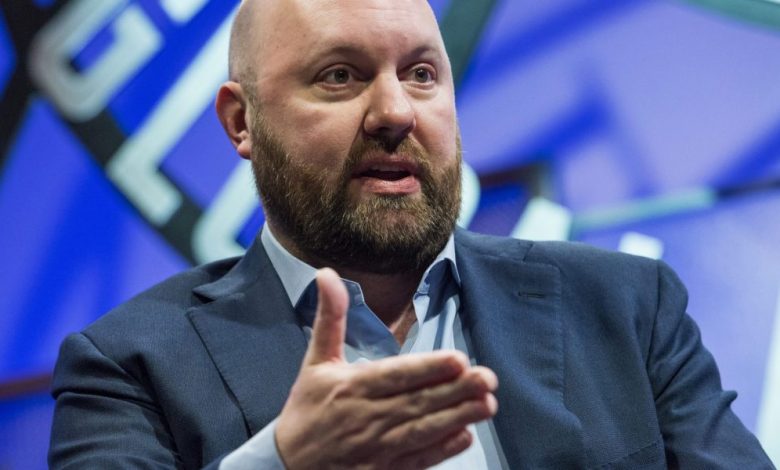Marc Andreessen: We’re moving into a world where a flat screen TV that covers your entire wall costs $100 and a 4-year deal costs $1 million

Marc Andreessen isn’t worried about artificial intelligence crowding out people’s jobs. In his opinion, technological innovations shouldn’t disrupt much of the economy anyway.
The co-founder of venture capital giant Andreessen Horowitz laid out his thoughts in his newsletter this weekend.
In less-regulated sectors of the economy, Andreessen argues, “technology is rushing through them, driving down prices and increasing quality every year.” Think computer software, cell phone services and televisions.
But in other sectors, technological innovation is “virtually forbidden,” he writes.
“Education, health care, and housing, and anything that is provided or controlled by government, are priced sky-high, even as these sectors are technologically stagnant,” he notes.
Furthermore, very little is being done to address this problem, he writes: “We are heading towards a world where a flat screen TV that covers your entire wall costs $100, and a four-year college degree costs $1 million, and nobody has anything It even resembles a suggestion how to fix this systematically.”
Over time, he adds, prices for regulated, non-technology-driven products will increase, while prices for less-regulated, technology-driven products will fall.
“What is eating the economy? The regulated sectors continue to grow as a percentage of GDP; the less regulated sectors are shrinking,” he writes. “At the limit, 99% of the economy will be made up of regulated, non-tech sectors, and that’s what we’re heading for.”
Andreessen has made a similar argument before, although he used it in a different way this weekend. In 2017, at a Recode conference, he divided the economy into a fast and a slow sector. The former is “eaten” by software, as he famously put it Wall Street Journal op-ed in 2011 and become more efficient, with prices falling accordingly.
But in the slow sector — elderly care, childcare, health care, education, construction, and government — prices are rising rapidly and there is almost no productivity growth, as measured by economists. “If these sectors are not controlled, they will basically just eat up the economy,” he said.
In his post this weekend, Andreessen used the argument to discredit the “panic” over artificial intelligence job displacement and the notion that AI is somehow different from previous technologies seen as a threat to employment.
“AI cannot cause overall unemployment to rise, even if Luddites’ arguments are correct this time,” he writes. “AI is just already illegal in most of the economy and will soon affect virtually the entire economy.”
Learn how to navigate and build trust in your organization with The Trust Factor, a weekly newsletter exploring what leaders need to succeed. Login here.



